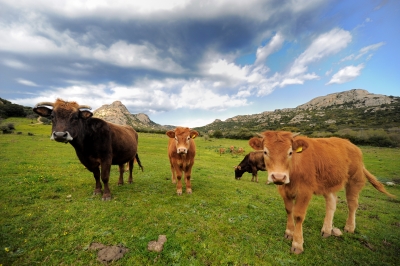US-based agricultural and food company Cargill has announced to cut the use of antibiotics in its US cattle supply by 20%, a move which is likely to impact 1.2 million cattle annually.
From now, Cargill plans to reduce the shared-class antibiotics which are considered important for human medication, farm animals from its feed yards in certain US states.

Apart from eliminating the use of shared-class antibiotics at four feed yards in Texas, Kansas and Colorado, Cargill is also implementing the decision at four additional feed yards that are operated by Friona Industries, a business associate which supplies cattle to the company.
Cargill Wichita-based beef business president John Keating said: "Our decision to eliminate 20 percent of the antibiotics used in our beef cattle, which are also used for human health, took into consideration customer and consumer desires to help ensure the long-term medical effectiveness of antibiotics for both people and animals.
"We need to balance those desires with our commitment to ensure the health of animals raised for food, which contributes to the production of safer food."
The company has announced the decision after a review of existing third party research and research previously conducted by the company regarding reduction of antibiotic use. The evaluation also involved consumer research by taking inputs from customers.
John Keating said: "As part of the consumer research we've conducted, we learned that we need to be more transparent about practices such as use of antibiotics. We will use our newly created webpage (www.cargillfreshmeat.com) to communicate our beef antibiotic policy, in addition to any newsworthy milestones that have the potential to further reduce antibiotic use in beef cattle.
"We will also engage with customers and other important stakeholders on a continual basis to better understand their expectations regarding antibiotic use in beef production, and how we can better meet those expectations. Accountability and credibility are crucial to the success of our long-term efforts to produce nutritious, affordable, wholesome and sustainable beef products our customers and consumers want to purchase and enjoy."
Cargill will not used any antibiotic for growth promotion of the cattle covered in the stated regions. The company also plans to identify alternatives to antibiotics that could further minimize their use in beef cattle.
Cargill is collaborating with cattle ranchers, researchers, universities and allied partners to explore production practices and feasible alternatives that could help reduce use of antibiotics for food animal production.
John Keating said: "Scientific research and yet-to-be-discovered innovative technologies could certainly help us further reduce, or eliminate, the need for antibiotics in the beef supply chain.
"We have an obligation to ensure that sick animals do not suffer, and that we prevent them from becoming ill, and we will use ongoing research efforts as the basis for any future additional reductions in antibiotic use. We've listened to consumers and our customers, we've taken this first step, and we believe there are more steps coming in the not-too-distant future."
The company also plans to increase its beef quality assurance to 90% by 2018, with the able support of Beef Quality Assurance (BQA) certified feed yards that supply cattle to Cargill.
BQA is a stewardship certification program designed by the National Cattlemen's Beef Association (NCBA). It also includes training for cattle producers in best practices.
The latest decision strengthens the previous commitment made by Cargill in 2014 to eliminate growth promoting antibiotics in the US turkey business, which the company claimed to have achieved in 2015.
Image: Cargill scales back antibiotic usage in its cattle. Photo: Courtesy of federico stevanin/FreeDigitalPhotos.net.





